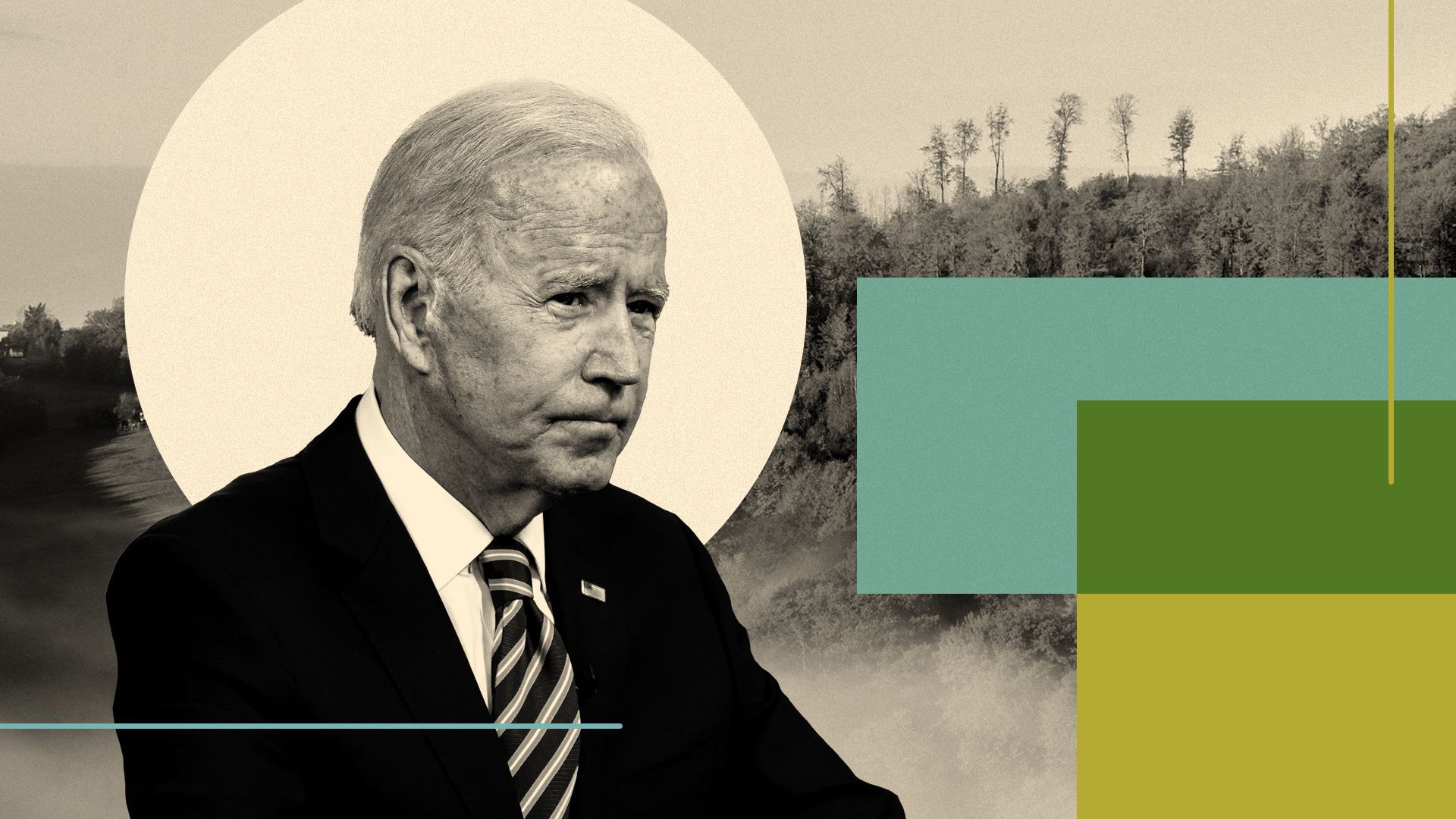
Photo illustration: Sarah Grillo/Axios. Photos: Julian Stratenschulte (picture alliance), Al Drago/Getty Images
President Biden is about to have his first big opportunity to rally global climate action as he visits Rome for the G20 meeting and Glasgow for the crucial COP26 climate summit.
The big picture: Biden will arrive in Glasgow on Monday with a significant new goal: $555 billion in climate-related spending. But tensions with China, lingering mistrust of the U.S. on climate and the inherent difficulties of corralling 197 countries are all working against him.
- Not to mention the fact that his big climate spending plan isn't law yet, and may never be if congressional Democrats can't pass it.
Why it matters: This is easily the most significant U.N. climate summit since Paris in 2015. It's billed as the “last best chance” for countries to set a new climate course by pledging dramatic action this decade.
- Biden has vowed to halve U.S. emissions by 2030, and has proposed — but not yet passed — the most far-reaching climate bill of any president in history. But the U.S. was also the only country to leave the Paris accord, under Donald Trump.
- “It will be interesting to see how much they’re accepted, or not, because they’re such an important player but they go back and forth in wild swings,” says Jennifer Allan of Earth Negotiations Bulletin, which reports closely on U.N. climate negotiations.
- Developing countries will be looking to Biden’s summit speech for more commitments on financing to help increase their resilience to the ravages of global warming — a vital issue on which the U.S. and other rich countries have not met their Paris promises.
“Everyone is going to be parsing that speech,” said Rachel Kyte, dean of the Fletcher School at Tufts University and an advisor to the U.N. Secretary-General. She says all eyes will be on the two biggest carbon emitters, China and the U.S., both of which have left other countries disappointed so far.
- John Kerry, Biden’s climate envoy, has attempted to coordinate with his Chinese counterpart ahead of the summit, but broader relations remain frosty and China on Thursday declined to speed up its emissions cuts.
- “I do hope that the discussions that Secretary Kerry has had with climate envoy [Xie Zhenhua] will lead to some concrete breakthroughs in the negotiations in Glasgow,” says Børge Brende, President of the World Economic Forum and a Kerry confidant.
- “We’ll see. But to get global solutions, the relationship between the G2 (U.S. and China) is critical.”
Yes, but: U.N. climate summits are never about just the superpowers, given that each nation on Earth participates and all major decisions are reached by consensus. In other words, every country is its own Joe Manchin or Kyrsten Sinema.
- Unlike Paris, COP26 won’t be working toward a single landmark accord, but a number of key agreements to give the world a chance of meeting the Paris targets.
- After Biden departs Glasgow on Tuesday, Kerry and his team will fan out across the conference, where negotiations will grow ever more technical and contentious.
The bottom line: “They will be everywhere trying to drive this process to an outcome where the world feels like there’s an agreement that gives everyone confidence that we have the right objectives and we have the determination to get there,” says Pete Ogden, formerly a senior member of Barack Obama’s climate team and now VP for climate at the U.N. Foundation.
- “And then, you know, it will be the day after Glasgow and the fight will have to go on.”

